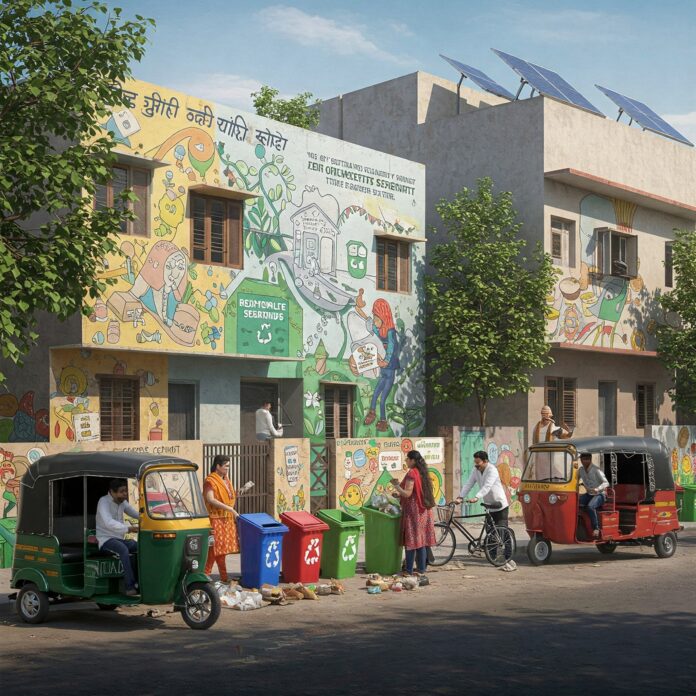NEW DELHI: The Municipal Corporation of Delhi (MCD) is setting its sights on a significant expansion of its ‘zero waste’ initiative, aiming to certify 200 more colonies by May 2027. This push is part of the ongoing “Swachhta Abhiyan,” launched in September 2022, which seeks to transform waste management practices across the capital.
According to the latest waste management report submitted to Chief Minister Rekha Gupta, the MCD plans to add 100 areas to the zero waste list by May 2026, with a further 100 expected by May 2027. This expansion is projected to process an additional 25 tonnes of waste daily.
Currently, Delhi boasts 633 certified zero waste areas. This includes 593 colonies, group housing societies, and residents’ welfare associations (RWAs), alongside 40 institutes. Collectively, these areas are already segregating and processing approximately 100 tonnes of compostable waste each day.
In a certified zero waste colony, garbage undergoes meticulous segregation into wet waste, dry waste, sanitary waste, domestic hazardous waste, and e-waste. Wet waste is processed within the colony premises through decentralized composting, while dry waste is handled by authorized recyclers.
Despite the ambitious targets, progress has been described as modest when compared to Delhi’s vast network of over 1,800 colonies, in addition to unauthorized and village areas. Civic officials point to several hurdles slowing down the pace. These include a lack of adequate space for setting up waste segregation and composting logistics, behavioral issues among residents regarding waste separation, a perceived lack of seriousness in adhering to segregation norms, and the stringent criteria required for zero waste certification.
To encourage participation, the MCD introduced the ‘Harit Mitra’ and ‘Sahbhagita’ schemes in 2022, offering incentives and felicitations to RWAs. The ‘Harit Mitra’ concept involves individuals responsible for maintaining adopted gardens and parks and managing in-situ wet waste composting. The ‘Sahbhagita’ scheme requires 100% waste segregation and on-site wet waste composting within the colony, along with complete recycling of recyclable dry waste and proper handling of the remaining dry waste by the MCD or its authorized agencies.
Sahbhagita colonies are incentivized through a rebate system, utilizing 10% of the property tax collected or a maximum rebate of ₹1 lakh for development work recommended by the local RWA. However, this incentive is contingent upon the RWA achieving at least 90% property tax compliance in its area.
Currently, the MCD reports 338 Sahbhagita colonies and 255 Harit Mitra colonies. Officials maintain that these concepts are both economically and ecologically beneficial, promising reduced collection and transportation costs and decreased pressure on landfills. However, they acknowledge that covering the entire city presents a significant challenge, heavily reliant on resident cooperation, which is why no specific deadline has been set for city-wide coverage.
Residents have voiced concerns regarding the conditions for receiving incentives. Achieving zero waste status is seen as a demanding task due to the sheer number of households in a colony and the difficulty in ensuring consistent daily segregation from everyone. RWAs also face challenges in engaging dedicated staff, securing space for waste processing, monitoring operations, and arranging for alternative solutions if composting systems fail. Some residents feel the terms and conditions set by the MCD for incentives are difficult to meet given these practicalities.
In a recent development, the ₹1 lakh cap on development works for zero waste colonies has reportedly been removed following discussions with senior officials, as highlighted by Ruby Makhija of Navjiwan Vihar Colony, one of Delhi’s pioneering zero waste areas. Sources also indicate that some rebate in user charges is expected for such colonies.
The success of Delhi’s zero waste mission hinges on overcoming the existing logistical and behavioral challenges while effectively incentivizing community participation. The coming years will reveal how effectively the MCD can navigate these complexities to achieve its ambitious targets and transform waste management across the city.

